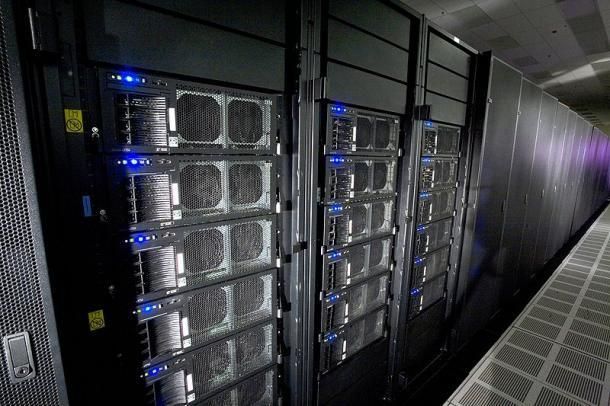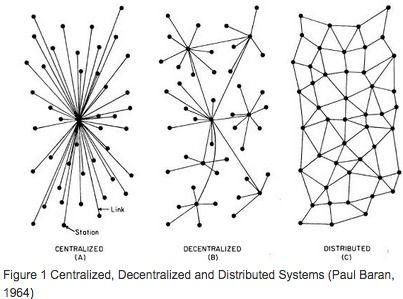This is definitely something worth keeping an eye on!



After Spencer Kimball left Google, he found himself missing some of the custom-built software the company uses internally. So he and a bunch of fellow ex-Googlers started building their own. And now they want to make it available to everyone to power the next Google or Facebook.
Specifically, Kimball wanted something like Google’s database system Spanner. Spanner is designed to juggle data between potentially millions of database servers, a tool that keeps Google’s services online even if several servers, or an entire datacenter, go offline. While few companies need to operate at quite the scale Google does, the ability to stay online even if many systems fail, and to automatically balance resources between servers, would be useful to many other companies. Read more

We’ve suspected it all along—that Skynet, the massive program that brings about world destruction in the Terminator movies, was just a fictionalization of a real program in the hands of the US government. And now it’s confirmed—at least in name.
As The Intercept reports today, the NSA does have a program called Skynet. But unlike the autonomous, self-aware computerized defense system in Terminator that goes rogue and launches a nuclear attack that destroys most of humanity, this one is a surveillance program that uses phone metadata to track the location and call activities of suspected terrorists. A journalist for Al Jazeera reportedly became one of its targets after he was placed on a terrorist watch list. Read more
- Press release by our partner ”Risk Evaluation Forum” emphasizing on renewed particle collider risk: http://www.risk-evaluation-forum.org/newsbg.pdf
- Study concluding that “Mini Black Holes” could be created at planned LHC energies: http://phys.org/news/2015-03-mini-black-holes-lhc-parallel.html
- New paper by Dr. Thomas B. Kerwick on lacking safety argument by CERN: http://vixra.org/abs/1503.0066

By Jason Dorrier — SingularityHub
Last year, Elon Musk and Stephen Hawking admitted they were concerned about artificial intelligence. While undeniably brilliant, neither are AI researchers. Then this week Bill Gates leapt into the fray, also voicing concern—even as a chief of research at Microsoft said advanced AI doesn’t worry him. It’s a hot topic. And hotly debated. Why?
In part, it’s because tech firms are pouring big resources into research. Google, Facebook, Microsoft, and others are making rapid advances in machine learning—a technique where programs learn by interacting with large sets of data.
Quoted: “Legendary cyberculture icon (and iconoclast) R.U. Sirius and Jay Cornell have written a delicious funcyclopedia of the Singularity, transhumanism, and radical futurism, just published on January 1.” And: “The book, “Transcendence – The Disinformation Encyclopedia of Transhumanism and the Singularity,” is a collection of alphabetically-ordered short chapters about artificial intelligence, cognitive science, genomics, information technology, nanotechnology, neuroscience, space exploration, synthetic biology, robotics, and virtual worlds. Entries range from Cloning and Cyborg Feminism to Designer Babies and Memory-Editing Drugs.” And: “If you are young and don’t remember the 1980s you should know that, before Wired magazine, the cyberculture magazine Mondo 2000 edited by R.U. Sirius covered dangerous hacking, new media and cyberpunk topics such as virtual reality and smart drugs, with an anarchic and subversive slant. As it often happens the more sedate Wired, a watered-down later version of Mondo 2000, was much more successful and went mainstream.”
Read the article here >https://hacked.com/irreverent-singularity-funcyclopedia-mondo-2000s-r-u-sirius/
Quoted: “Tony Williams, the founder of the British-based legal consulting firm, said that law firms will see nearly all their process work handled by artificial intelligence robots. The robotic undertaking will revolutionize the industry, “completely upending the traditional associate leverage model.” And: “The report predicts that the artificial intelligence technology will replace all the work involving processing information, along with a wide variety of overturned policies.”
Read the article here > https://hacked.com/legal-consulting-firm-believes-artificial-intelligence-replace-lawyers-2030/

Quoted: “If you understand the core innovations around the blockchain idea, you’ll realize that the technology concept behind it is similar to that of a database, except that the way you interact with that database is very different.
The blockchain concept represents a paradigm shift in how software engineers will write software applications in the future, and it is one of the key concepts behind the Bitcoin revolution that need to be well understood. In this post, I’d like to explain 5 of these concepts, and how they interrelate to one another in the context of this new computing paradigm that is unravelling in front of us. They are: the blockchain, decentralized consensus, trusted computing, smart contracts and proof of work / stake. This computing paradigm is important, because it is a catalyst for the creation of decentralized applications, a next-step evolution from distributed computing architectural constructs.
Read the article here > http://startupmanagement.org/2014/12/27/the-blockchain-is-the-new-database-get-ready-to-rewrite-everything/
Quoted: “Ethereum will also be a decentralised exchange system, but with one big distinction. While Bitcoin allows transactions, Ethereum aims to offer a system by which arbitrary messages can be passed to the blockchain. More to the point, these messages can contain code, written in a Turing-complete scripting language native to Ethereum. In simple terms, Ethereum claims to allow users to write entire programs and have the blockchain execute them on the creator’s behalf. Crucially, Turing-completeness means that in theory any program that could be made to run on a computer should run in Ethereum.” And, quoted: “As a more concrete use-case, Ethereum could be utilised to create smart contracts, pieces of code that once deployed become autonomous agents in their own right, executing pre-programmed instructions. An example could be escrow services, which automatically release funds to a seller once a buyer verifies that they have received the agreed products.”
Read Part One of this Series here » Ethereum — Bitcoin 2.0? And, What Is Ethereum.
Read Part Two of this Series here » Ethereum — Opportunities and Challenges.
Read Part Three of this Series here » Ethereum — A Summary.